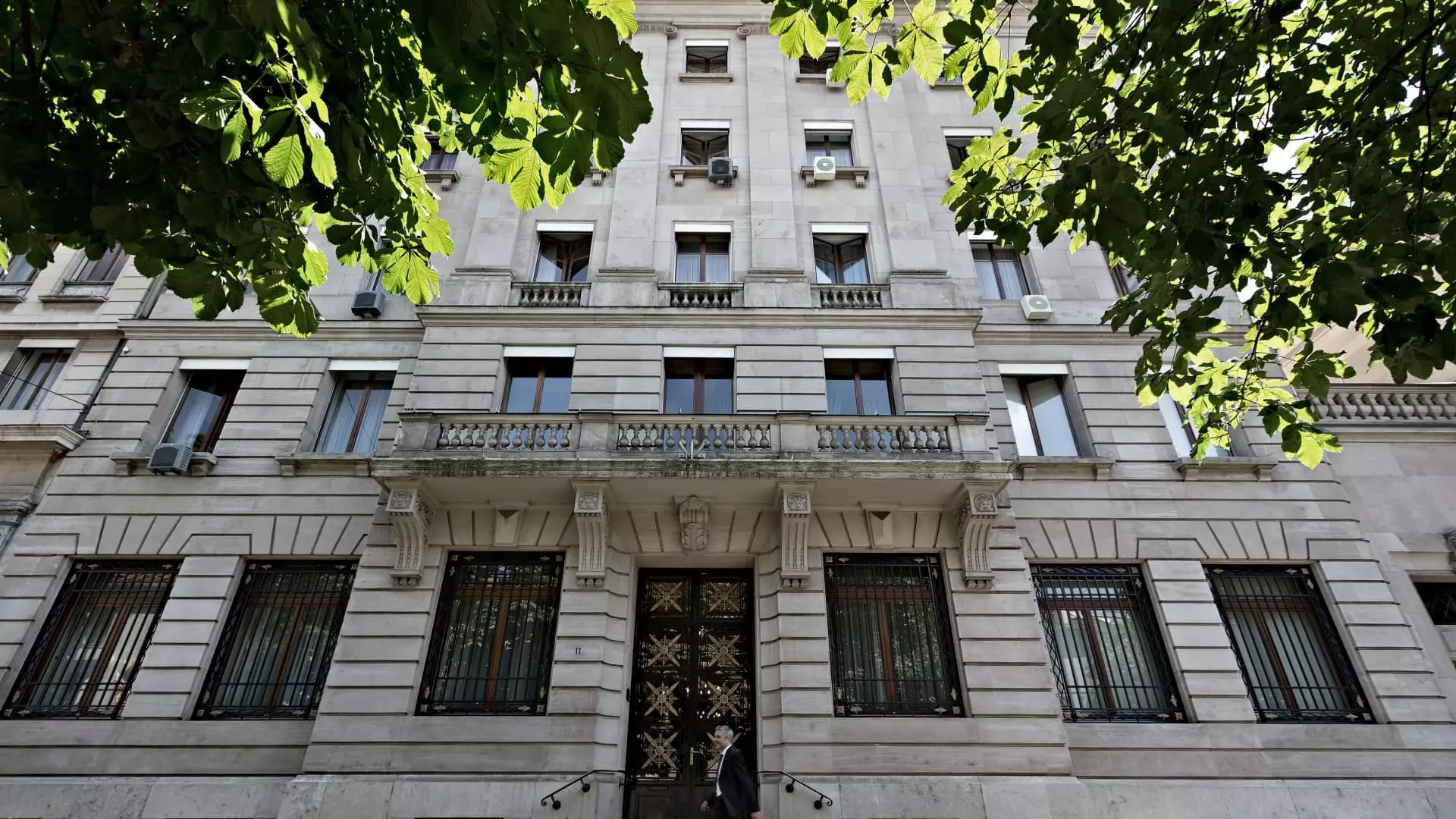Lombard Odier, a stalwart in the Swiss banking community with roots tracing back to 1796, faces a storm of legal repercussions following its indictment for aggravated money laundering. The recent announcement by the Office of the Attorney General of Switzerland (OAG) reveals serious charges leveled against the esteemed private bank and a former employee connected to its operations. This incident underscores a significant breach of ethics and regulatory compliance, raising questions about the integrity of historically reputable institutions.
The Allegations: A Dark Connection to Criminality
The heart of the allegations revolves around the involvement of Gulnara Karimova, the estranged daughter of Uzbekistan’s late president Islam Karimov. Accusations claim that Lombard Odier facilitated the concealment of illicit funds connected to Karimova’s alleged criminal enterprise, operational between 2005 and 2012. Such links draw an alarming picture of how elite financial institutions can unwittingly, or perhaps knowingly, become vehicles for nefarious activities.
The OAG’s indictment signals a thorough investigation that commenced in 2016, shining a light not only on this particular case but also on the wider implications of money laundering within the global banking sector. The suggestion that a significant portion of funds laundered in Switzerland might have transited through Lombard Odier raises grave concerns about the effectiveness of their compliance and monitoring systems.
In the face of these accusations, Lombard Odier has maintained its innocence, asserting that the claims against it are baseless. The bank insists it was proactive in reporting suspicious activities to Swiss authorities, positioning itself as a responsible entity in the financial landscape. However, the public perception and trust in such narratives can be a hard sell, especially when the severity of the charges looms large.
The implications of this case are profound, reflecting a broader anxiety surrounding the accountability of private banks in managing and monitoring the origins of their clients’ funds. As a prestigious institution, Lombard Odier now finds itself at the crossroads, potentially tarnishing its image while facing legal consequences that could fundamentally alter its operation and credibility in the banking industry.
These unfolding events not only implicate Lombard Odier but also illuminate critical aspects of regulatory frameworks governing financial entities. The banking sector’s response to issues of money laundering has become increasingly scrutinized, given the global ramifications of such practices. Institutions must cultivate robust systems of compliance and risk management to safeguard against potential exploitation by individuals linked to organized crime.
The ongoing situation with Lombard Odier serves as a stark reminder of the necessity for heightened vigilance in the banking world. As financial crimes become more sophisticated, it is imperative that banks enforce stringent measures to mitigate risks. Only through such diligence can they hope to uphold their integrity and retain the trust of their clients and regulatory bodies alike.
With the legal proceedings against Lombard Odier just beginning, the financial world watches closely. The outcomes could set precedents that may reshape the operational frameworks of banks across the globe. In an era where transparency and accountability are pivotal, the road ahead for Lombard Odier is fraught with challenges that will test its resilience and commitment to ethical banking practices.


Leave a Reply